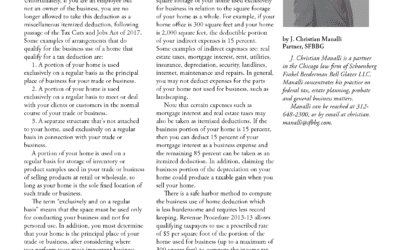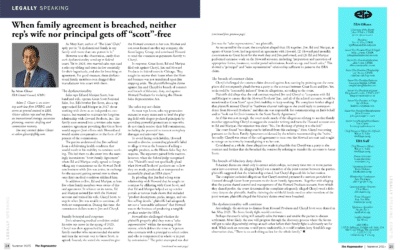On July 9, 2013, Illinois became the final state in the nation to allow residents to carry concealed weapons. The Illinois State Police intends to begin accepting applications for concealed carry licenses on January 5, 2014, and licenses will be issued thereafter. For employers concerned about the potential risk for increased violence in the workplace due to employees and others carrying concealed weapons, there are a few basic steps that they should consider taking.
The default rule under Illinois’ concealed carry law is that licensees are allowed to carry concealed weapons onto private property unless expressly prohibited from doing so by the owner. For employers who are tenants, this means that landlord approval is necessary before the concealed carrying of weapons can be banned.[1] If such approval is granted, or if the employer owns its own premises, it will then need to post a 4 x 6-inch notice that concealed weapons are not permitted in a conspicuous location at the entrance to the premises. The Illinois State Police recently issued a template for the notice.
(see http://www.isp.state.il.us/firearms/ccw/CCWProhibitedAreaSign.pdf ).
However, even if such notice is posted, an employee will still be able to keep a concealed firearm in his or her locked car on the employer’s parking lot so long as the firearm is out of sight. Moreover, the employee will be able to carry an unloaded weapon in the parking lot for the purpose of storing it or retrieving it from the vehicle’s trunk.
Employers also may want to review their workplace violence policies in light of the new law or to create a workplace violence policy if they do not already have one. If appropriate, employers may want to expressly state that no weapons are allowed on their premises, that employees may not carry concealed weapons in company vehicles and/or that employees may not carry concealed weapons when they are working at a customer’s premises or otherwise offsite. Finally, employers should consult with their insurance carriers to determine how barring or allowing employees to carry concealed weapons will affect their premiums.
Illinois’ concealed carry law leaves unsettled many issues that may concern employers. The laws in certain other states grant employers immunity from any liability that may arise if they allow the concealed carrying of weapons, but Illinois does not provide this type of protection. Likewise, several states expressly bar employers from terminating employees who leave concealed weapons in their personal vehicles or from asking employees if they have any concealed weapons, but Illinois’ statute lacks any comparable provisions. Therefore, until courts provide guidance, employers should be cautious about questioning or disciplining employees who possess concealed weapons in personal vehicles.
The Labor and Employment Report addresses current issues in labor and employment law. Please contact Seth at (312) 648-2300 or [email protected] if you have any questions about this blog or any other labor or employment law issue.
[1] Tenant employers who are concerned about this issue should raise it with their landlords now, but also make sure to do so when they renew their leases or move into a new premises.



